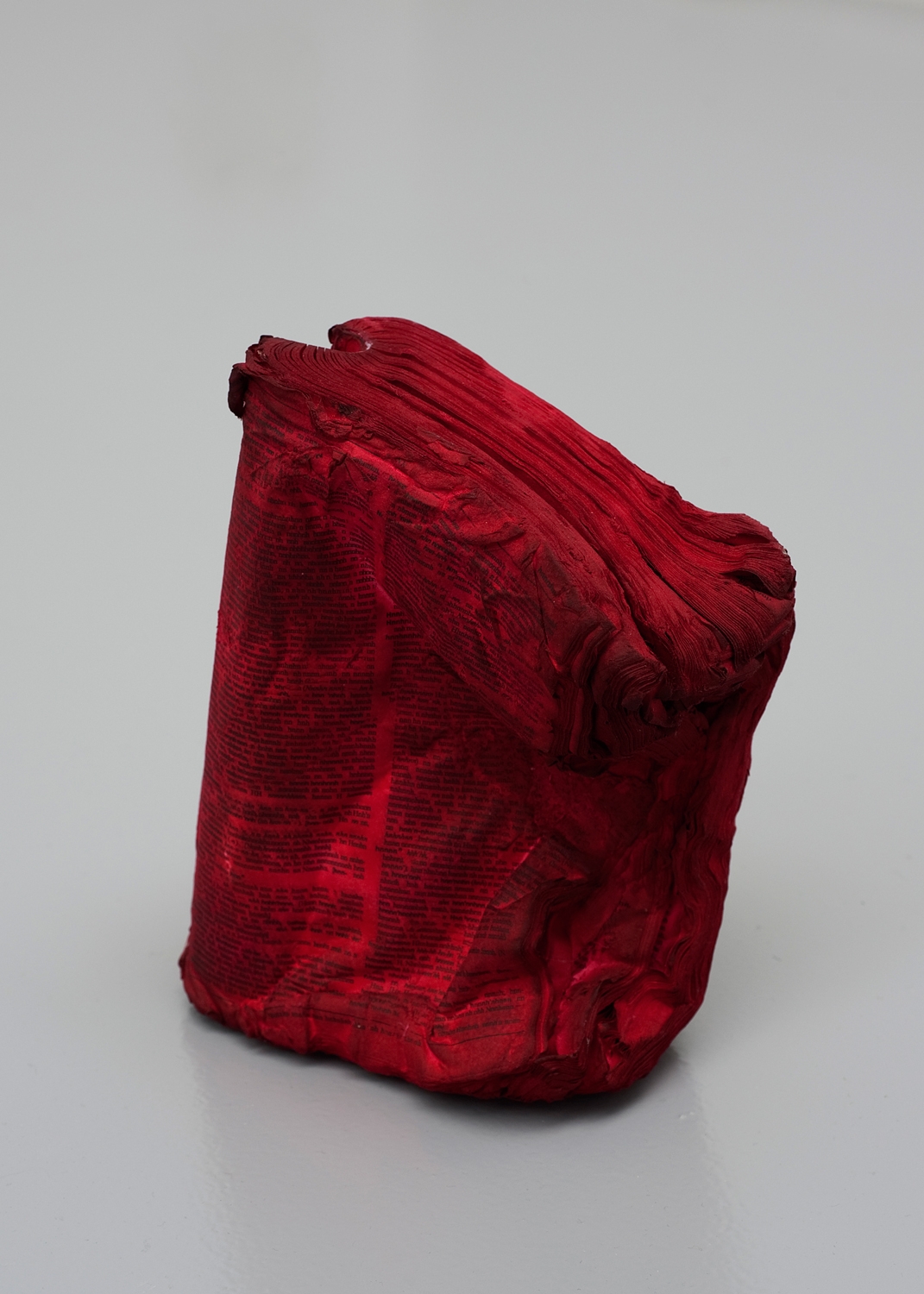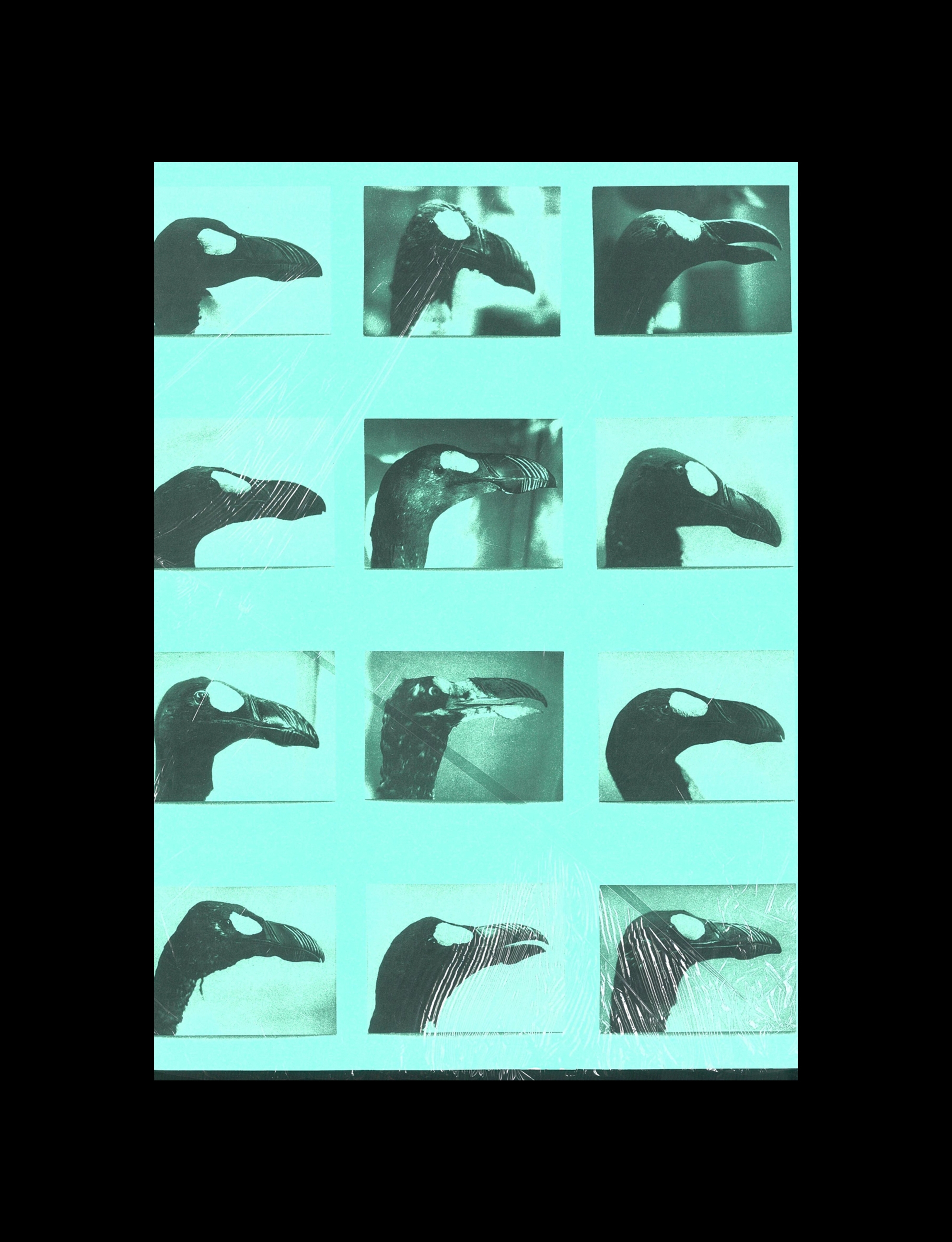The Registry of Promise: The Promise of Literature, Soothsaying and Speaking in Tongues
Carlo Gabriele Tribbioli, Lucy Skaer, Reto Pulfer, Matt Mullican, Jean-Luc Moulène, Becky Beasley, Michael Dean
Group exhibition
25 January – 29 March 2015
Vleeshal Zusterstraat (Map)
Curator: Chris Sharp

The Registry of Promise was a series of exhibitions that reflected on our increasingly fraught relationship with what the future may or may not hold in store for us. These exhibitions engaged and played upon the various readings of promise as something that simultaneously anticipates a future, its fulfillment or lack thereof, as well as a kind of inevitability, either positive or negative. Such polyvalence assumes a particular poignancy in the current historical moment. Given that the technological and scientific notions of progress inaugurated by the enlightenment no longer have the same purchase they once did, we have long since abandoned the linear vision of the future the enlightenment once betokened. Meanwhile, what is coming to substitute our former conception would hardly seem to be a substitute at all: the looming specter of global ecological catastrophe. From the anthropocentric promise of modernity, it would seem, we have turned to a negative faith in the post-human. And yet the future is not necessarily a closed book. Far from fatalistic, The Registry of Promise took into consideration these varying modes of the future while trying to conceive of others. In doing so, it sought to valorize the potential polyvalence and mutability at the heart of the word promise.
Taking place over the course of approximately one year, The Registry of Promise consisted of four autonomous, inter-related exhibitions, which could be read as individual chapters in a book. It was inaugurated by The Promise of Melancholy and Ecology at the Fondazione Giuliani, Rome, then followed by The Promise of Multiple Temporalities at Parc Saint Léger, centre d’art contemporain, Pougues-Les-Eaux, then The Promise of Moving Things at Centre d’art contemporain d’Ivry – le Crédac, Ivry-sur-Seine, and concluded with The Promise of Literature, Soothsaying and Speaking in Tongues at Vleeshal, Middelburg.
The fourth and final part of The Registry of Promise: The Promise of Literature, Soothsaying and Speaking in Tongues, addressed language, modes of writing and the book. Stretched to its breaking point while being at once materialized and dissolved into a certain opacity, language assumed a plastic quality in this exhibition – as if it were something that could be grabbed onto and held, and yet remained entirely beyond one’s grasp. What is more, in this exhibition language was been made to shed its practical capacity of communication, entering into a much more marginal space of purpose, while nevertheless seeking to foster a productive, if at times, sinister reverie.
All the artists included in this exhibition have a close relationship to language, but one which varies both formally and referentially. Becky Beasley and Michael Dean possess a distinctly literary approach, as in Beasley’s paper back-sized sculpture A Storage Space (After Faulkner) (2008). Fashioned out of Black American Walnut and black glass, this sculpture, whose dimensions is the same as two, identical Penguin editions of William Faulkner’s As I Lay Dying, borrows the aesthetic vocabulary of minimalism, underlining its historical antagonism to narrative and effectively funereal character through the definitive closure of the book – a closure that nevertheless does not shut down narrative possibility, but rather opens it up through its very absence. This more pointed literary work was complemented by the suspended rotating sculpture, Bearings (2014). This three meter long, brass cast is made from nine twigs collected by the artist’s father from wind-fall after the St. Jude storm. Assembled as such, they could be read as a syntactical construction evocative of a divining rod. Michael Dean’s hnnnhhnnn-hnnnhnnnnh (Analogue Series) (2014) consists of a dictionary drenched in red ink and left out in the sun to dry. Twisted and gnarled, it resembles a large, red tongue, itself beleaguered and ultimately disfigured by language.
Other artists, such as Jean-Luc Moulène and Lucy Skaer sublimate language into form, transposing it into something that at once transcends and remains immured in a decidedly unintelligible signification. Moulène’s Echantillon/Monochrome, New York, March 2010, for instance, comprises four panels, which have been uniformed colored with Bic felt markers. Readable as so many palimpsests laboriously transformed into monochromes, these panels speak to a glut and total saturation of word stuffs. Lucy Skaer’s sculptural installation Untitled (Le Siège) (2009), consists of a table whose surface has been carved into an 0 and which she uses to draw prints from. Language’s communicative function is subordinated to a seemingly counterintuitive image-making process.
The work of Matt Mullican, Reto Pulfer and Carlo Gabriele Tribbioli addressed language as something that exists between divination, world-making and speaking in tongues. While Matt Mullican is known for entering trance states to draw and write, elaborating systems as he proceeds, as exemplified in the complex drawing Chart (2003), presented here, the work of Reto Pulfer creates sculptures and installations based on his own private language systems. The work Hermetisch (2006), which involves cards, language and sticks, is activated by a performance in which chance and language determine the overall structure of the final result, which is evocative of a kind of soothsaying ritual. Finally, Carlo Gabriele Tribbioli’s installation Reperti per il prossimo milione di anni (2007-09) is the byproduct of an attempt to create a myth and ritual in the 21st century, whose primary audience is located in the future. Composed of everything from performance, photography, drawing, video, sculpture and installation, the final product consists of a meticulously and methodically constructed archive, which, for all its will to fashion a future myth, is ultimately inscrutable.
Publication
The work by Reto Pulfer is made possible by a financial contribution from Swiss Arts Council Pro Helvetia.

